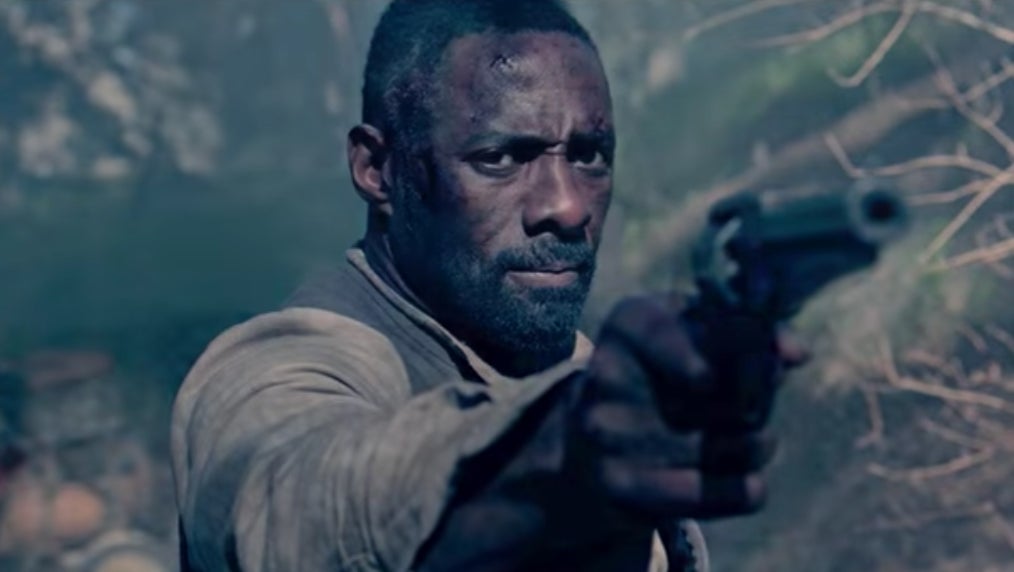Stephen King’s “The Dark Tower” film adaptation has finally emerged from development hell
A decade of reworked budgets, rewritten scripts, and studio swaps has at last borne fruit: The Dark Tower film is here.


A decade of reworked budgets, rewritten scripts, and studio swaps has at last borne fruit: The Dark Tower film is here.
Sony Pictures released the trailer for its long-awaited Stephen King adaptation today, more than 10 years since development on the project began. Based on the sweeping series of novels by the horror and sci-fi maestro, The Dark Tower was notoriously difficult to adapt to the screen, and went through several different iterations before landing at Sony.
Fans of King’s books appear split on the look and tone of the film, but one thing is undeniable: The Dark Tower has emerged from the depths of film development hell, an oblivion from which most of those consigned never escape.
The Dark Tower stars Idris Elba as “The Gunslinger,” a revolver-wielding protector of a fantastical world threatened by the “Man in Black,” an enigmatic sorcerer played by Matthew McConaughey. A young boy (Tom Taylor) finds himself in this otherworldly dimension and becomes entangled in the Gunslinger’s quest to save both his world and ours.
King’s story, an eight-book magnum opus inspired by The Lord of the Rings, defies categorization, mixing in elements of western, science fiction, fantasy, and horror. It’s far too elaborate to distill into a single two-hour film, so Sony won’t even try: The studio is planning a TV series to continue the story sometime after the film hits theaters in August.
The road to this point has been long and arduous, fitting for a tale about an epic quest spanning dimensions. The project has taken on many forms over its decade-long development history:
- 2007: Lost scribes Damon Lindelof and Carlton Cuse option the book rights from King, envisioning a series of seven films with Lost co-creator J.J. Abrams attached to direct.
- 2009: Lindelof and his team back out; Lindelof admits that as a King fan he’s “terrified of screwing it up.”
- 2010: The rights fall to writer Akiva Goldsman, who takes the project to Universal Pictures. Ron Howard is set to direct a film trilogy and subsequent TV series, aiming for a 2013 release.
- 2011: Concerned about the budget, Universal shops the project to other studios. Eventually, the studio slashes the film’s budget, has Goldsman re-write the script, and pushes the project back,
- 2011: Universal cancels its project. Howard and Goldsman shop it around Hollywood. Producer Brian Grazer says HBO will broadcast the TV-series portion of the project. (Nothing ever happens.)
- 2015: Sony Pictures agrees to bankroll Howard and Goldsman’s project with a new script. Howard stays on as producer, hiring relatively unknown Danish filmmaker Nikolaj Arcel to direct.
The film’s embattled history is not a great sign for its financial or critical prospects. Though there are exceptions, the track record for films that emerge from development hell leaves much to be desired. By the time they’re actually made, these films are often tainted by the input of too many cooks, and fail to reflect a singular vision. The trailer was not received well by book readers on Reddit.